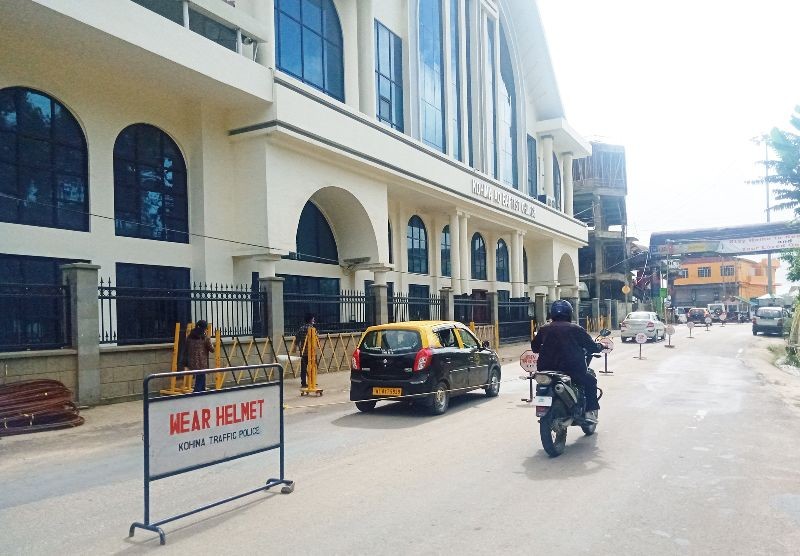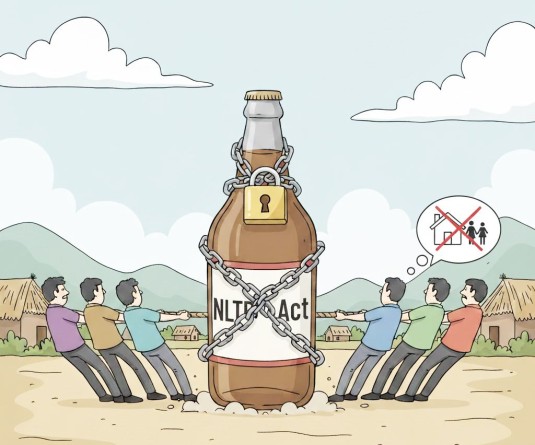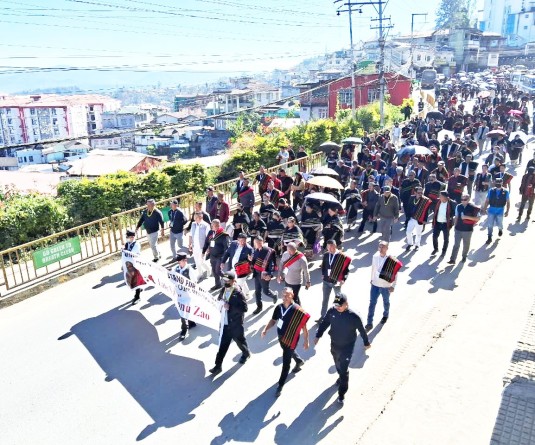Traffic flow along Old MLA’s Hostel Junction Kohima on June 22. (Morung Photo)

Commuters welcome initiative
Chizokho Vero
Kohima | June 22
The state capital Kohima today witnessed a minimal traffic flow following the implementation of Odd-Even system from June 22.
Kohima Police has announced the implementation of Odd-Even system for movement of vehicles under section 115 of Motor Vehicle Act 1988 in the interest of public safety and to minimize non-essential movement of vehicles.
On seeking public opinion on this system, Kethosituo Elvis Mepfhuo said “Definitely, the Odd-Even system in Kohima will minimize traffic flow to a certain extent.”
However, he said, people always find some ways to hoodwink law enforcement agencies, “so if this system is to continue beyond June 30, owners of two or more vehicles may rush to change registration numbers to suit their convenience. Also, some people may take advantage of the exemptions and try to obtain permits through unfair means.”
Still then I feel this is a good move and should continue, Mepfhuo told The Morung Express.
H Chishi recalled that this system is also applied in other states, like Kerala.
“If it was successful in Dimapur it can also be implemented in Kohima too. But in doing so, economic activities should not be hampered as we are witnessing economic meltdown due to COVID-19 pandemic,” Chishi opined.
“I think strict implementation of SOP would also help ease traffic in towns like Kohima and Dimapur,” he added.
“I feel it is a good initiative if it is implemented properly,” said Kelhikha Kenye.
He also lamented that inspite of the lockdown been imposed in the state capital Kohima we have seen heavy traffic in the main city in the recent days.
For every policy, there are merits and demerits. There will be inconveniences for many commuters as an outcome of this policy but it will greatly ease the traffic management in the city, he said.
He stated that faster and smooth traffic movement would also mean saving resources, time and energy. It will also reduce unnecessary movement of people with vehicles.
The use of public transport by the people will increase if this policy is introduced and implemented properly, Kenye opined.
Further, he suggested that government may consider a few measures if this policy is to be implemented for a longer period: (1) Improve the government public transport system (2) There should be provisions for exceptional emergency situations (3) Policy should be implemented for all. “Exemptions to officials should be very clear so that it is not misused,” Kenye added.


.jpg)


.jpg)
